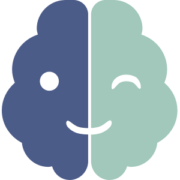The world is dying.
There is a grammatical misunderstanding common to many U.S. Americans, largely because we learned about grammar in the either/or terms of right vs. wrong. Here’s the misunderstanding: can not or cannot? My public school teachers said can not was the correct form, and that cannot was a corruption. A friend of mine from a previous generation was taught the opposite. Her son, much better at using the language than either of us, said both were right, but usage depended on context.
Here’s the explanation: If I can not do something, then I can also do it. I can not write these words if I choose (and you may think I shouldn’t), but I also can, and am, writing them. What I cannot do is know who will read them, or what they will think. I can imagine such things, but I’m limited by my experience and perceptions. So this is the rule: if you either could or could not do something, then you use two words, because you can leave out the second word if you so choose. If you could not do something no matter how much you desired or tried, then you use one word, cannot. There is no other option.
Sometimes both are true. Witness:
I cannot change the world.
I can not change the world.
It’s true, I cannot change the world. What I mean, and what many mean when they say or think this to themselves, is that the world’s problems are too big for any one person, or group of people, to take on. Poverty, sickness, hatred, love, weather, earthquakes, political and religious differences—these are inevitable conditions. Even Jesus said, “the poor you will have with you always,” and, “Let the dead bury the dead.”
It’s also true that I can change the world. I, and every other person on the planet, can make a difference. We can give to the poor, and try to cure ourselves of the sickness of wealth (more on that later). We can be courteous, we can provide emotional (listening) or physical (assisting) or financial (donating) help to others, we can feed and help and forgive each other. (More about forgiveness later, too.) We can take in an abandoned dog or cat and give it love. We can plant a garden. We can put in a day’s work and know we earned our pay, and someone, hopefully, was the better for it. We can not cut off someone in traffic. We can dedicate our lives to healing. We can dedicate our lives to loving our family and community. We can respect the differences of others. In other words, what we can do, we can do.
Grammar is the tool we use to communicate and should be taught as such. Our bodies, our minds, and our voices are the tools we have to interact with our universe. We must use them while we live; we cannot evade using them except through death or dire injury. In this sense we cannot not change the world. And now, while the world suffers on every level, from the sky to the deeps of the sea, from humans to tiny coral polyps, we can make what time we have count.
Originally posted on LiveJournal, then shortly thereafter transferred to alexfiles.com (my online home from 1999–2018). For a brief heyday it was the top Google result for the “cannot vs. can not” search.
